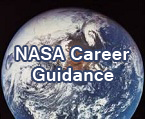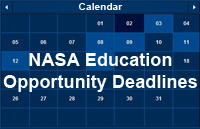A new study suggests that women’s lack of confidence in their math skills may be one reason for the gender gap in the STEM fields. The study used a national survey of 5,000 college students enrolled in first-semester calculus. Among all aiming to pursue STEM careers, 35% of women reported that they did not understand […]
2016 Study: Could women’s lack of confidence in Calculus be a contributing factor to the gender gap in STEM?
Posted in: Calculus, Gender-gap, research, Women in STEM
Invest in Youth Innovators Now!
The U.S. is currently 4th in the world for innovation. However, in order to maintain and increase innovation the country must invest in the younger generation. In a study on innovators, researchers found that students from low income families were less likely to file a patent for an invention than students from high income families. […]
Posted in: Diversity, Innovators, research, Students, Technology
Language is Essential in STEM
In our globalized economy, knowledge of different languages, cultures, and social systems is critical. Cultural competence and language education is not a top priority in U.S. schools. Recently, the U.S. Government invested to increase STEM in schools. Unfortunately, language curriculum was not included in the investment….and it should be.
PCAST Calls for Increased Investment in Competitive Agricultural Research
Today, the President’s Council of Advisors on Science and Technology (PCAST) released a new report, “Agricultural Preparedness and the Agriculture Research
Posted in: Agriculture, research, STEM
College Degrees in STEM Experiencing Tuition Increase
Not only does a poor economy increase job loss, unemployment, and job scarcity, but a recent study from Cornell shows a differentiation in undergraduate tuition rates – 19% [More…] rise (over 140 colleges) since 2006. Unfortunately, colleges have been forced to increase tuition since funding for many public schools has declined due to new policies. This, coupled with the stigma that STEM-related education is “too hard” could be threatening to a much needed workforce. Even more detrimental, a loss in a trained STEM workforce could pose a threat to the U.S. economy in the future. See Article ->
Research Experience of Undergraduates
The National Science Foundation has a Research Experience of Undergraduates program. Go here for more information on this great program.
Posted in: Counselors, Educators, Parents, research, Students, Undergraduate
National Science Digital Library
NSDL is the Nation’s online library for education and research in Science, Technology, Engineering, Mathematics.
Preparing Youth for STEM Careers: 14 Facts
Mark Savickas’s review of literature reviews and longitudinal studies lead to these 14 useful claims in advising students for success.
Posted in: advising, Counselors, research







